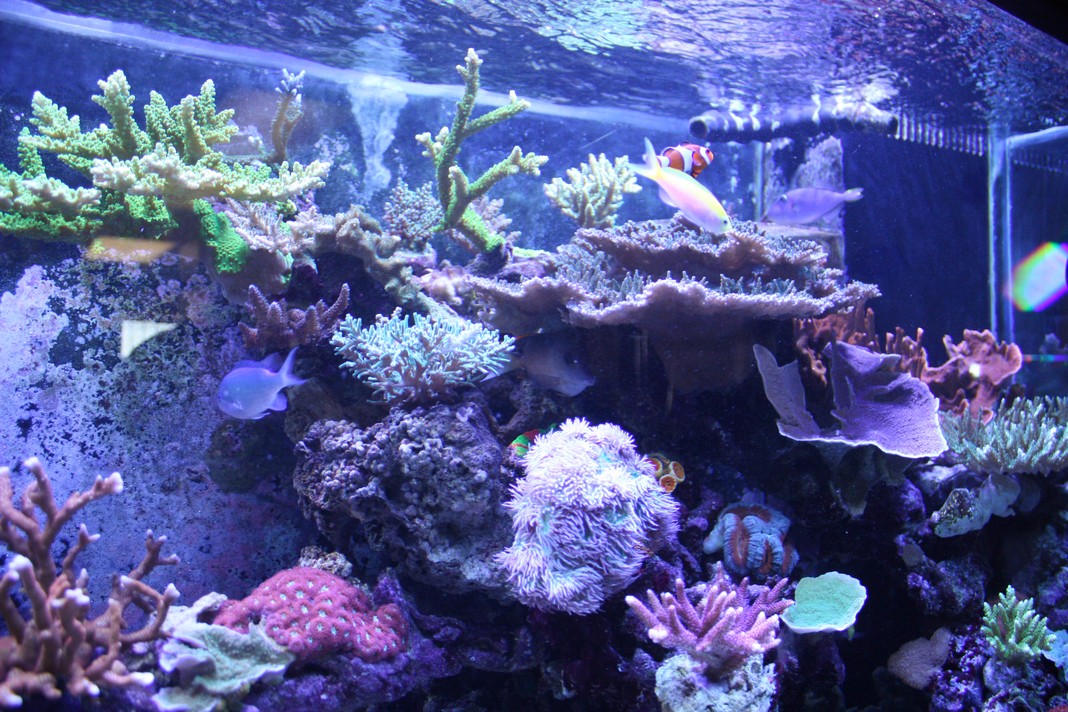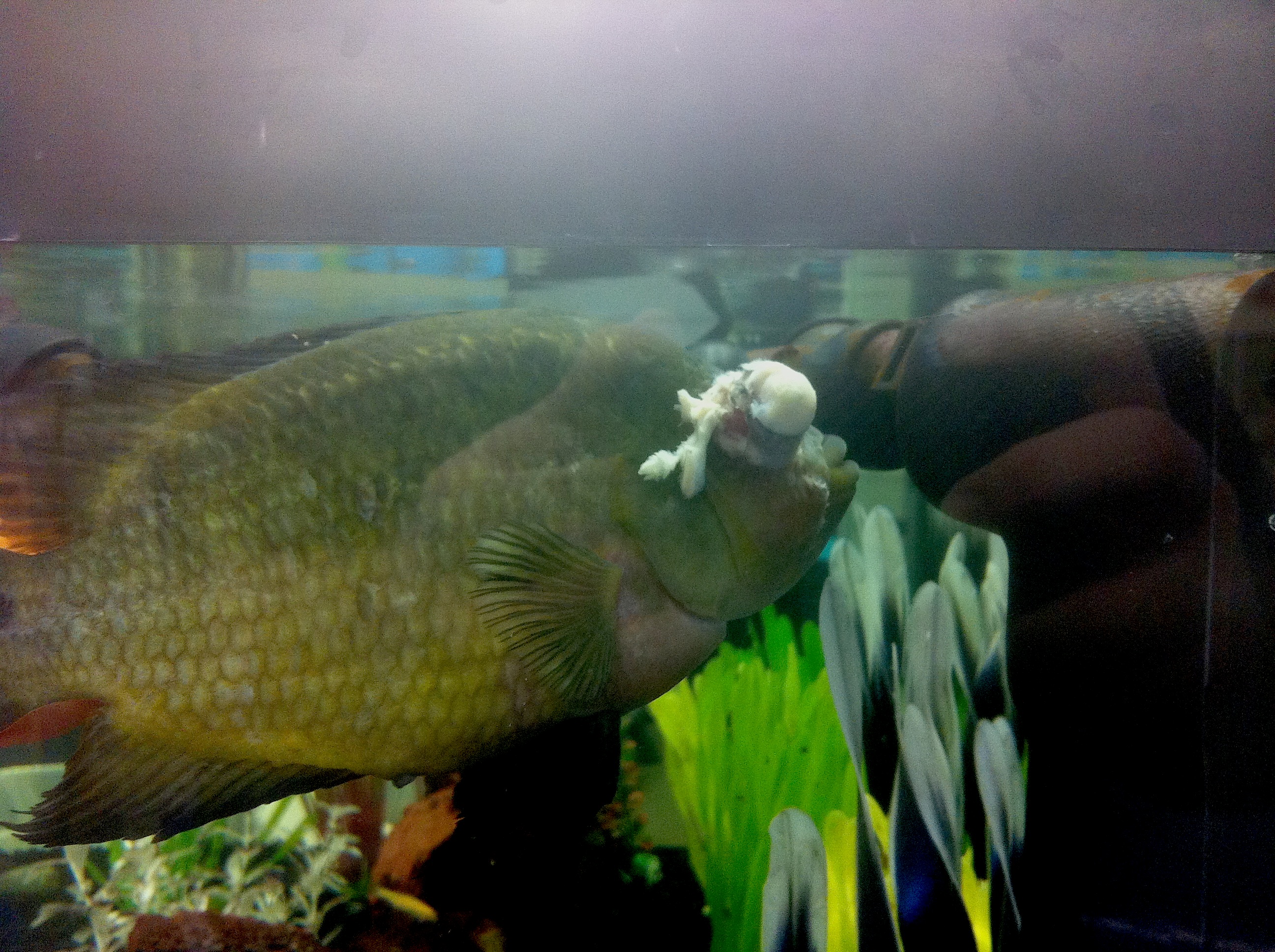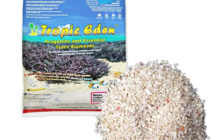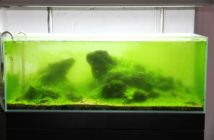The following is the first contribution from our most recent addition to the AquaNerd team, local fish store manager Daniel Leija. Daniel has been in charge of the saltwater section at a local store for as long as I can remember, and we’re excited to have him on board.
Being a long-time employee at a LFS, I hear many great success stories and many customers come in to share some amazing tank photographs. Just like there are positive things exchanged in my day to day conversations with customers, there are also the horror stories. Many beginner aquarists seek the help of fish stores to guide them down the correct path and, unfortunately, many stores throw unreasonable information to customers just to keep them shopping at their store. From my experience, here are some of the things that will surely make any established reefer cringe. It’s a list of bad advice that hobbyists have come into the store regurgitating while attempting to sort through all of the information to find out how to do things right.
I have always had customers tell me that a fish store said it was okay to run their lights 24/7. As experienced hobbyists, we know the consequences of running our lights a few extra hours longer than necessary. Can you imagine running them every hour every day? Our hobby consists of very powerful lighting systems. These lights emit a high output and running them all the time does not only diminish the life span of whatever type of bulb in use and it also raises the possibilities of an algae bloom. Algae depend on photosynthesis to grow, therefore running your lights all the time keeps that nuisance algae well feed. Water evaporation is another issue, in my aquarium I lose roughly three to four gallons of water a week, so if I was to run my lights all the time you could double the amount of water being evaporated. Water evaporates because of heat and what produces heat? The answer would be our lighting systems. Heat is not an issue if you run a chiller, but not everyone owns a chiller. Running that 2x250w metal halide all the time is not that great of an idea anymore now is it?
Another conversation I have with misinformed customers, usually once or twice a month, is the placement of Yellow Tangs in aquariums significantly smaller than what this fish requires. Many stores do give the okay to customers about certain fish going into their tanks just to make a sale. The minimum tank size I recommend to any customer for a Yellow Tang is usually no less than 100 gallons, sometimes even a 90 gallon depending on the amount of swimming space in the aquarium. Even though Yellow Tangs might be able to live off frozen foods or flake food, a truly healthy specimen is one that is provided with natural food. This means enough rockwork for them to graze on or seaweed sheets to supplement the tangs with the essential nutrients for it to thrive. Before you recommend any kind of fish that requires special needs, do not hesitate to ask and inform the customer of such details.
Customers have corrected me when I mention to them that I highly recommend cycling their tank more multiple weeks plus before adding any fish. Their correction method was to tell me that another “expert” told them it was completely ok to set up a saltwater and place fish in the aquarium roughly an hour after initial set up. There is more to this, they continue to tell me that they purchased a Lion Fish, a Blue Tang, and a dozen Damsels, that the fish store sold to them knowing their tank was not even set up. This bad information if abundant in the freshwater aquarium hobby, and it’s a model most new freshwater hobbyists go by when setting up their aquarium, but there’s no room for it in the saltwater side of the hobby.
We all know that flatworms are not only unpleasant to look at, but depending on the species, they can be threatening to the aquarium. Well, a customer came in very concerned that he was losing many of his Zoanthid colonies. My first suggestion was to bring me a sample of water and even some of the Zoas so I could attempt to determine the issue. As all this occurred, his water tested out perfect but when I took a look at the Zoas, the culprit was looking right at me. Not only did the customer have Zoanthid eating flatworms, but he also had Zoa eating spiders and Zoa pox. I was then told by the individual that the store he got them from told him that these critters where completely a good thing to have in their system. Supposedly they would go around and clean the Zoa colonies. Now if that did not make you cringe, I have something that will get to your last nerve.
We had a bubble tip in one of our coral bays at the store, and a customer came up as I was spot feeding the anemone and told me, “I wish I could get my nems to live that long; they don’t even make it a few hours so I quit.” I then started a conversation attempting to help the customer out. I asked him about water parameters, lighting, feeding habits, tank size, rock work, you name it. Well, the customer then revealed to me that all of his five anemones he purchased at Petco. I then questioned the customer about his acclimation method and if he knew the salinity that Petco was keeping their tanks at. The guy knew what he was talking about and I was just about to give up when I decided to ask him what exactly he was doing when he got home with the anemone. The customer explained to me that he would arrive at his house begin his acclimation process and once that was done with he would release it in the tank. Then he went on to tell me that once he put up his acclimation buckets, he then super glued the anemone to the rockwork. Bingo! I asked him why he was doing this. He told me it was what the fish guy at Petco recommended for him to do.
I know most of you are probably are either at Petco complaining or re-reading the last paragraph because you still cannot believe what was just read. It is unbelievable the amounts of wrong information that is out there. One person giving out wrong information is all it takes to discourage the many new aquarists joining out hobby. If you don’t know the answer to question it is better to simply say you don’t know and allow for others to help. Fish stores are not the only source of incorrect information. Many forums can contain very helpful threads but also have information that is very irrelevant and miss








Pingback: The AquaNerd Weekly Recap | AquaNerd()